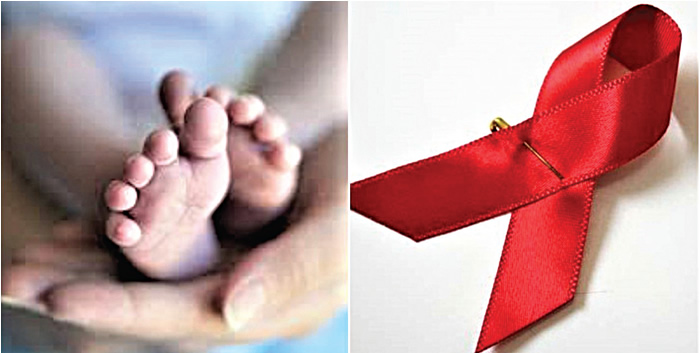The Director General of the National Agency for the Control of AIDS, Dr. Temitope Ilori, has disclosed that 1.6 million out of the estimated 2 million Nigerians living with HIV are currently undergoing treatment.
Speaking at a press conference in Abuja ahead of the 2024 World AIDS Day, Dr. Ilori emphasised the need for sustained efforts to address mother-to-child transmission and achieve an AIDS-free Nigeria by 2030.
“Nigeria has an HIV prevalence rate of 1.4 percent among the general population aged 15-64 years, with approximately two million people living with HIV. About 1.6 million of them are presently on treatment,” Dr. Ilori stated.
However, she highlighted the country’s ongoing struggle with preventing mother-to-child transmission, noting, “The UNAIDS 2023 report shows that approximately 160,000 children aged 0-14 are living with HIV, with 22,000 new infections and 15,000 AIDS-related deaths occurring each year. Despite our progress, paediatric HIV coverage remains below 33 per cent, far short of the 95 per cent target.”
To tackle these challenges, NACA has launched the Global Alliance Action Plan to End AIDS in Children.
“We have developed a fully resourced plan, but coverage continues to fall short,” she admitted.
Ilori also highlighted advocacy efforts led by the Minister of Health and Social Welfare, Prof. Muhammad Pate, including the establishment of state-level committees to support the initiative.
“This will ensure no child is born HIV positive in Nigeria,” she said.
Ilori underscored the need for sustainability in the HIV response, saying, “We are co-creating a sustainability roadmap to secure the gains made in the HIV response. This roadmap will safeguard the country’s health and social stability, even in the face of donor withdrawal.”
The Country Director of UNAIDS, Dr. Leo Zekeng, echoed the call for sustainability, stating, “Sustainability for us means renewed political commitment and more domestic resources from both the government and private sector. It also means doing more with the little resources we have.”
The Chief Executive Officer of the Institute of Virology Nigeria, Dr. Patrick Dakum, emphasised the importance of collaborative efforts.
Represented by Dr. Olayemi Olupitan, he remarked, “World AIDS Day reminds us of our collective responsibility to ensure no one is left behind in the fight against HIV/AIDS. Our programmes focus on integrating HIV and TB services, strengthening health systems, and addressing social determinants of health that perpetuate inequalities.”
PEPFAR Nigeria Country Coordinator, Funmi Adesanya, stressed the need to expand prevention strategies and invest in healthcare resilience.
Meanwhile, Ogun State Commissioner for Health, Dr. Tomi Coker, has revealed that approximately 30,350 people are currently receiving HIV/AIDS treatment in the state, with children comprising about two per cent of this number.
Speaking at a press briefing organised by the Ogun State Agency for the Control of AIDS to commemorate this year’s World AIDS Day, Coker emphasised the urgent need to prevent mother-to-child transmission and ensure access to adequate care and treatment for children living with HIV.
“HIV/AIDS continues to pose a significant public health challenge in Nigeria, with an estimated 1.9 million people living with the virus as of 2020.
“In Ogun State, about 30,350 individuals are receiving HIV treatment, with children making up approximately 2 per cent of this population.
“This statistic highlights the urgent need to focus on preventing mother-to-child transmission and ensuring that children living with HIV have access to the care and treatment they need,” she said.
According to her, this year’s World AIDS Day theme, “Take the Right Path: Sustain HIV Response, Stop HIV Among Children,” aligns with Ogun State’s commitment to the global goal of eradicating HIV/AIDS by 2030.
Coker expressed optimism about the state’s progress, stating, “With a prevalence rate of 1.6% (NAIIS 2018), we are steadily progressing towards achieving the UNAIDS 95-95-95 targets—where 95% of people living with HIV know their status, 95% of those diagnosed are on treatment, and 95% of those on treatment have achieved viral suppression. Currently, Ogun State stands at 95%, 76%, and 83% across the three targets.”
She outlined the state government’s achievements, including the expansion of HIV/AIDS treatment sites from 22 to 43 and the introduction of MPIMA machines for early infant diagnosis of HIV.
She also highlighted the engagement of 150 mentor mothers across the state’s 20 local government areas to provide peer support and encourage adherence to treatment.
“The Ogun State government has shown that it is possible to use all available resources to address the concerns of the people and provide a trajectory for national development,” she said.
The commissioner emphasised the importance of tackling social determinants such as poverty, stigma, and gender inequality, noting that they fuel the spread of HIV.
“To sustain the current momentum and achieve zero cases of HIV/AIDS by 2030, increasing funding for HIV programmes to ensure their sustainability must be prioritised,” she stressed.
The Special Adviser to Governor Dapo Abiodun on Information and Communication, Kayode Akinmade, urged the media to support the government’s efforts through public education campaigns.
“Adequate enlightenment will help provide the public with sufficient knowledge to guide them aright and take proactive actions,” he said.
